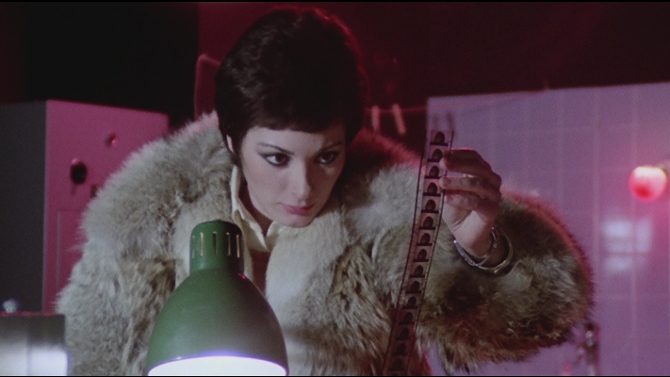
Strike a Pose
Pushing the boundaries of the Italian giallo, Andrea Bianchi’s aptly titled Strip Nude for Your Killer (1975), which features numerous examples of the seductive art of striptease, oodles of nudity, and a violently high body count, is an example of Eurotrash in its most disturbingly alluring state. . . not for the prudish or weak of heart, but fascinating to be sure. A glossy B movie set in the posh world of a Milanese modelling agency, one of the house’s top photographers, Carlo (Nino Castelnuovo), uses his advantageous position to pull stunning women into his bed (I use this term loosely – a steamy sauna works just as well for the cheeky fellow) with promises that they will grace the cover of the world’s most iconic fashion magazines.
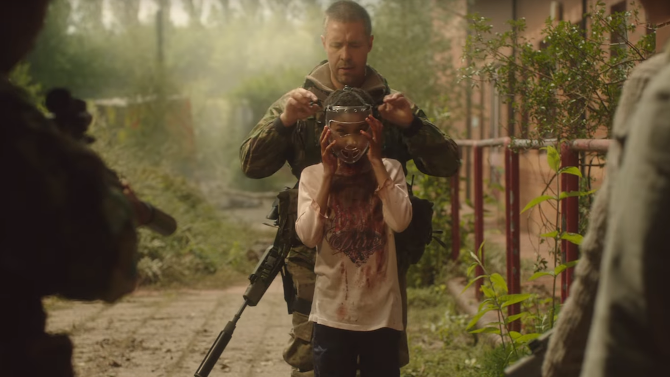
Fungal Infection
Children: those cute, innocent little scamps that bring a smile to our faces get a frightening makeover in Colm McCarthy’s The Girl with All the Gifts – a 2016 zombie horror flick out of Britain that finds some interesting new ground within the sub-genre. Finding a place somewhere between Day of the Dead and 28 Days Later, a small group of people have kept some normalcy at a military base (much of which is underground – similar to the former film mentioned above). . . mostly armed soldiers, the men fall under the control of Sgt. Eddie Parks (Paddy Considine), who only answers to Dr. Caroline Caldwell (Glenn Close) – a military scientist who has been tasked with researching the fungal outbreak that has caused a worldwide zombie-like plague (only the creatures are excessively fast, much like the latter feature referenced above).
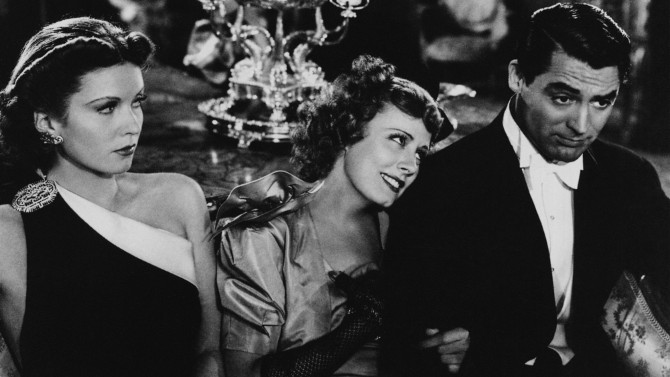
The Truth, the Whole Truth, and Nothing But the Truth
In one of the most frank speeches in Oscar history, Leo McCarey, upon winning the Academy Award for Best Director, took the statuette, and boldly stated, “I want to thank the Academy for this wonderful award. . . but you gave it to me for the wrong picture”. For those who have seen Make Way For Tomorrow, you will immediately know why he said it (a picture with a message and one of the great endings in film history, Orson Welles once claimed, “it would even make a stone cry”), but, that is not to say that the movie that he won for, 1937's The Awful Truth, is not deserving of some praise. A motion picture that helped put the screwball comedy on the map (The Awful Truth was based on a 1922 play by Arthur Richman and filmed twice before this version), it earned six Oscar nods (claiming the trophy for McCarey) – a darling to critics and one of the top commercial successes of the decade, while its irreverent mix of slapstick (it immediately evident that McCarey directed silent comedies; for example, the works of Charlie Chase and Harold Lloyd, while also pairing Laurel and Hardy together, and into the sound era, The Marx Brothers), witty repartee, and folly filled characters make it an absolute charmer.
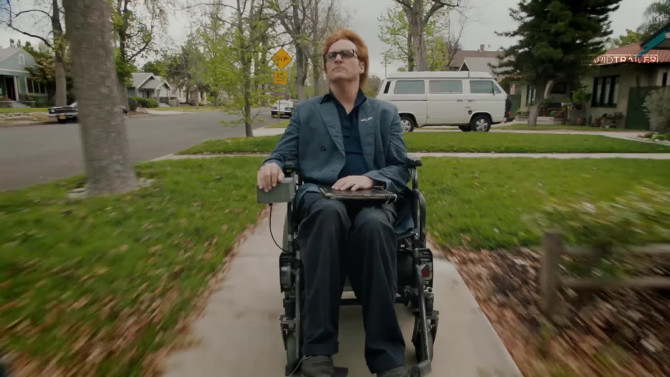
Wheelchair Accessible
Ah, the good old days. . . when you could drive around drunk, blowing chunks out of the window along the way. Of course, I’m being facetious, but this folly-filled sequence, set in an era when this happened more than anyone would like to remember (the 1970s), is a lead in to the first of two cruxes at the centre of the politically incorrect leaning titled feature, Don’t Worry, He Won’t Get Far on Foot (2018) – co-written and directed by Gus Van Sant. Centred on John Callahan (Joaquin Phoenix), the fateful sequence finds him in the passenger seat while said vomiter, Dexter (Jack Black), drives them to their next alcohol-fuelled party – falling asleep at the wheel, the brutal accident leaves Callahan a paraplegic.
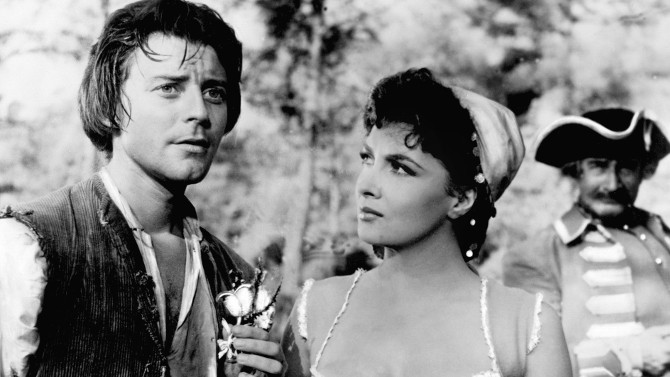
Le Swashbuckler
A swashbuckling tale of adventure, romance, and intrigue, Fanfan la Tulipe (1952), directed by Christian-Jaque, found its way to me rather serendipitously – a thirty-three dollar Criterion feature tucked in the back of a country thrift shop (price tag – two bucks). Following the titular character, played by Gérard Philipe, as he gets embroiled in one scenario after another, mostly thanks to his fortune having been told, this occurrence helps form his unorthodox path (more on that later). . . I must say that it seems rather funny that I found this one in a place wholly unexpected, especially since the film deals with fate and destiny. Played with a comedic spin, the story is set during the Seven Years’ War, and as the voice over (narrated by Jean Debucourt) puts it: “war, the only recreation of kings which the people could enjoy. . .the regiments of Picardy, Aquitaine and Burgundy fought elegantly, killing each other with grace, disemboweling in style. . . His Majesty’s soldiers found this war so pleasant that they made it last seven years”.
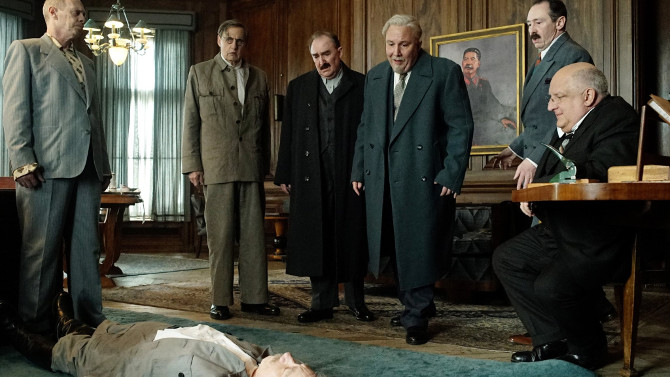
A Communist Plot
Conniving, chaos, cruelty, and paranoia – four words that aptly describe today’s film. . . and, whose first letters provide a hint as to the setting: that’s right – CCCP. The Death of Stalin, Armando Iannucci’s 2017 comedic spin on the historical event, follows in the vein of his BBC series The Thick of It and HBO show Veep, as well as his film In the Loop, a razor sharp political satire with quick banter, clever wordplay, and a more than interesting topic. Of course, if you know the work of Iannucci, it will be quite obvious that the lexicon of such a film is much more expansive than the four words used to open the piece – fear and power also come to mind. Going hand in hand, it is this power through fear that has Andreyev (Paddy Considine), a theatre manager that has not recorded a broadcast that Josef Stalin (Adrian McLoughlin) now wants a copy of, panicking to keep the band and audience in their seats to do it all over again. . . it is also the same dread that steers Stalin’s guards to stand pat after hearing a thump from within the leader’s room – when in actuality, the dictator is slowly dying, steeped in his own urine. It is this irony, and grey area comedy, that comes from a pitch dark premise – finding an absurd humour in the disturbing story.
